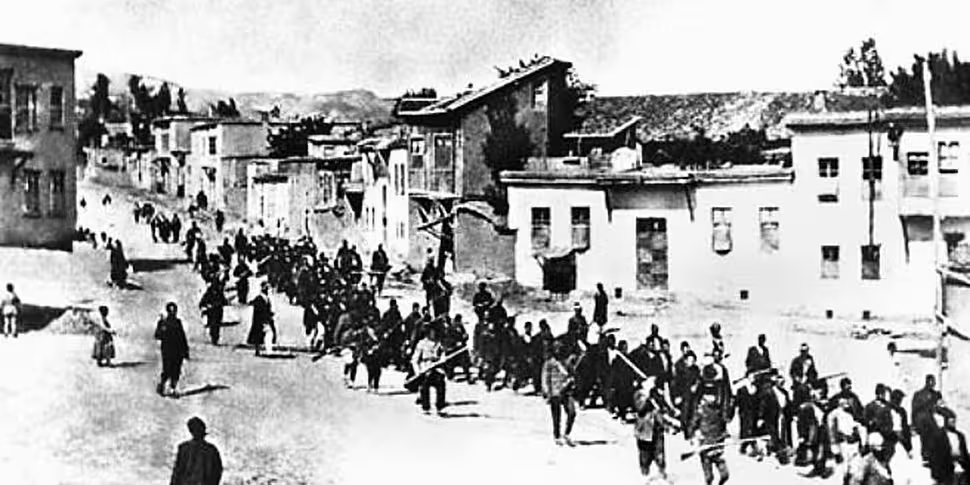On this week’s ‘Talking History’ the topic for discussion will be the Armenian Genocide. This atrocity occurred during World War I and was committed by the Ottoman Empire against the Armenian people.
Armenia, as a nation, has its roots in the Caucasus region for millennium. In the 15th century, their relatively small nation was absorbed into the Ottoman Empire. Even at this stage divisions were apparent, which were mainly drawn along religious lines. The Ottoman Empire was an Islamic institution, while the Armenian people were a Christian nation.
Moving forward to the turn of the twentieth century, the growth of the neighbouring Russian empire, which was also Christian, led the Ottoman rulers to question the loyalty of their Armenian contingent. This led to increased tension and conflict between the Armenian people and their superiors. In particular, this view was held by the Young Turks, the nationalist government that came to power 1908. They viewed the Armenians as an increasing threat to the Ottoman Empire, which itself was degrading during this time. This was exemplified by the Balkan Wars of 1912 and 1913.

The revolutionary Young Turks entering Istanbul in 1909
With the outbreak of World War I, the Ottoman Empire joined forces with the Central Powers- Germany and the Austro-Hungarian Empire. Russia allied with Britain and France and so the tension would reach breaking point. With the Armenians sympathetic to the Allied cause, their status as the enemy within was confirmed and the systematic extermination began. Some were forcefully assimilating into the Turkish nation, but the majority were slaughtered. The massacres continued for the duration of World War I, with some violence extending past this conflict and into the 1920s.
Despite strong condemnation from the international community, little or nothing was done to counter the mistreatment of the Armenian people. Additionally, no action was taken against the Ottoman forces that perpetrated these war crimes.
At the beginning of the twentieth century, over two million Armenians lived in the Ottoman Empire, but by 1922 only three hundred thousand remained. Many escaped the turmoil, with hundreds of thousands seeking refuge in friendly European states and the US. However, the total death rate is estimated at over one million people.

Scene of Adana Massacre, 1909, a precursor to the onset of the Armenian Genocide
There is clarification needed when assigning the term ‘genocide’ to the events of this period. Indeed, the term wasn’t established until 1946. It was at this time, following World War II, that the UN General Assembly acknowledged and adopted genocide as a war crime under international law. It is basically defined as a dominant nation seeking to ‘solve’ an issue arising from interstate conflict. Ultimately, it is when population engineering is combined with wide scale massacre.
Though genocide is a legal term as opposed to a tool for historical analysis, when looking at the Armenian case in retrospect, it is clear to see the hallmarks of this practice. European countries, such as France and Germany have acknowledged the advent of genocide in this case, as have various international institutions such as the European Parliament and the United Nations. This is also supported by an overwhelming amount of work conducted by academics and historians. However, Turkey, the successor state to the Ottoman Empire, continues to deny the occurrence of the Armenian Genocide.
Listen in to ‘Talking History’ as Patrick and his panel of experts dissect the unfortunate occurrence of the Armenian Genocide. Was the backdrop of World War I an important factor? To what extent was the Ottoman policy of extermination pre-meditated? And what were the motivations behind this brutal action?









